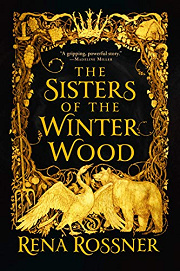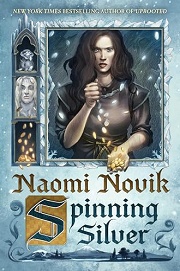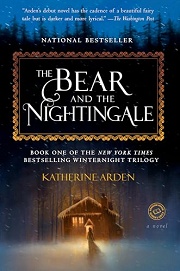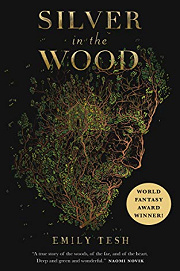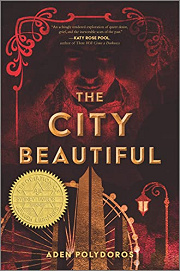Share your thoughts in a quick Shelf Talk!
Sisters of the Winter Wood by Rena Rossner
Two sisters on a forest’s edge confront ancient magic and looming peril as whispers of legend slip into their waking lives. Lush, lyrical, and steeped in folklore, Sisters of the Winter Wood is a tale of family, courage, and the strange hunger of the world.
Have you read this book? Share what you liked (or didn’t), and we’ll use your answers to recommend your next favorite read!
Love Sisters of the Winter Wood but not sure what to read next?
These picks are popular with readers who enjoyed this book. Complete a quick Shelf Talk to get recommendations made just for you! Warning: possible spoilers for Sisters of the Winter Wood below.
In Sisters of the Winter Wood, did you enjoy ...
... the folklore-rich, Jewish-tinged Eastern European setting and perilous bargains with wintry beings?
Spinning Silver by Naomi Novik
If the way Liba and Laya navigate goblin temptations and old-country magic gripped you, you’ll love how Miryem, a moneylender’s daughter, outwits a chilling winter king in Spinning Silver. Like the sisters’ shtetl on the Ukraine–Moldova border, Novik’s villages feel steeped in legend and prejudice; Miryem faces the same whispers and dangers that shadowed Liba’s family. Where Laya was lured by those fruit-sellers, Miryem enters dangerous bargains of her own—each deal tightening like the goblins’ snares—and must protect those she loves with wit and courage, much as the bear-strong Liba shields her swan-sister.
... lush, wintery folklore and village life anchored by a brave young woman?
The Bear and the Nightingale by Katherine Arden
If Rossner’s lyrical voice—especially Laya’s songlike chapters—and the snow-laden woods around the sisters drew you in, The Bear and the Nightingale offers that same shimmering hush of winter folklore. Vasya, like Laya, can sense what others cannot: the old spirits in oven and stable. As a zealous priest and harsh winters press in (echoing the fear and suspicion that threaten Liba and Laya’s shtetl), Vasya must safeguard her family and the forest’s magic. The prose is as lush and incantatory as those goblin-fruit scenes, with danger and wonder twined together.
... an intimate, small-cast folklore tale where love and loyalty guard an enchanted wood?
Silver in the Wood by Emily Tesh
If you loved how Sisters of the Winter Wood stays close to two lives—the protective Liba and the impulsive Laya—this gentle, greenwood tale keeps its circle just as tight. Tobias, a quiet guardian of the forest, and Henry Silver, the curious folklorist who stumbles into his world, forge a bond that must face old curses and older legends. The hush of trees, the sense of a place alive with story, and the focus on a few hearts in peril mirror the sisters’ secluded border life and the private stakes of resisting those mesmerizing fruit-sellers.
... goblin-fruit temptation and lush, dangerous first love?
Lips Touch: Three Times by Laini Taylor
If Laya’s near-fatal fascination with the fruit-sellers gave you chills, the opening novella of Lips Touch: Three Times (“Goblin Fruit”) hits that same vein—goblins who tempt a girl with sweetness that costs too much. Across the three tales, Taylor’s prose is as sensuous and incantatory as Rossner’s, and the heroines face choices that echo Laya and Liba’s coming-of-age—romance edged with peril, bargains that bite back, and the push-pull between longing and loyalty.
... Jewish faith, folklore, and community threaded through a historical fantasy confronting antisemitism?
The City Beautiful by Aden Polydoros
If the Shabbat warmth in Liba’s home and the stark threat closing in on their shtetl moved you, The City Beautiful channels that same soul: Alter Rosen, a Jewish immigrant in 1893 Chicago, is possessed by a dybbuk after his friend’s death and must hunt a killer. The story leans on ritual, memory, and community—much like the sisters’ reliance on prayer and tradition when their parents leave—and faces down antisemitism with the same defiant heart Liba shows when she stands between Laya and danger.
Unlock your personalized book recommendations! Just take a quick Shelf Talk for Sisters of the Winter Wood by Rena Rossner. It’s only a few questions and takes less than a minute.
